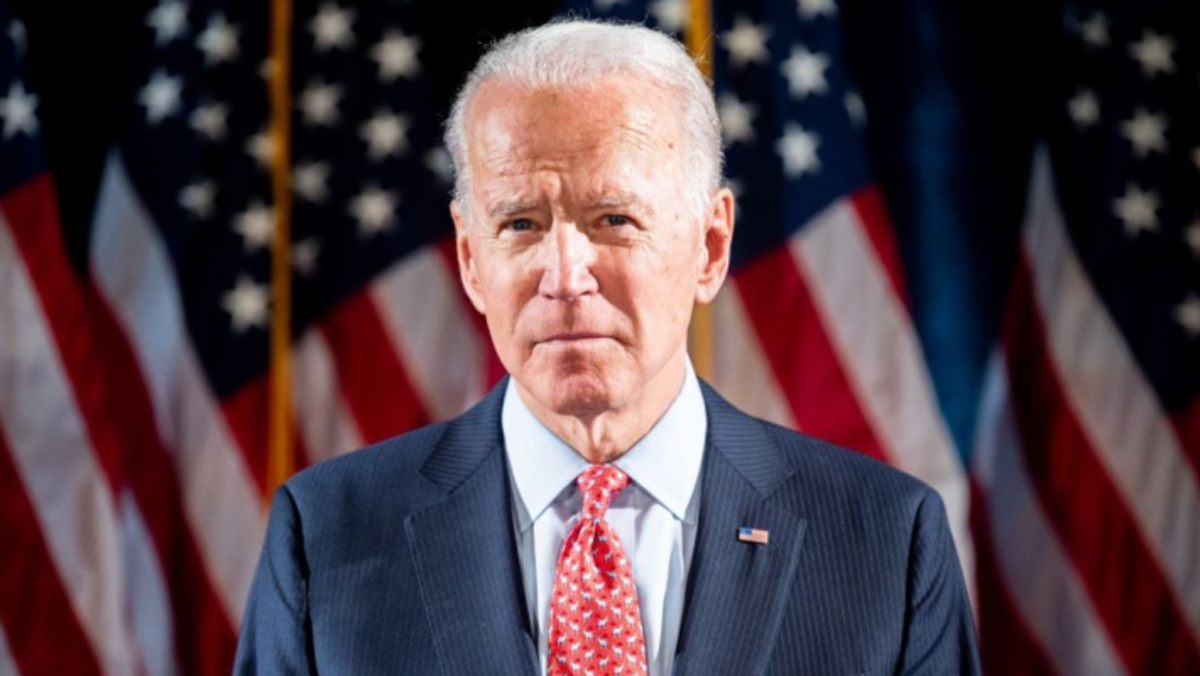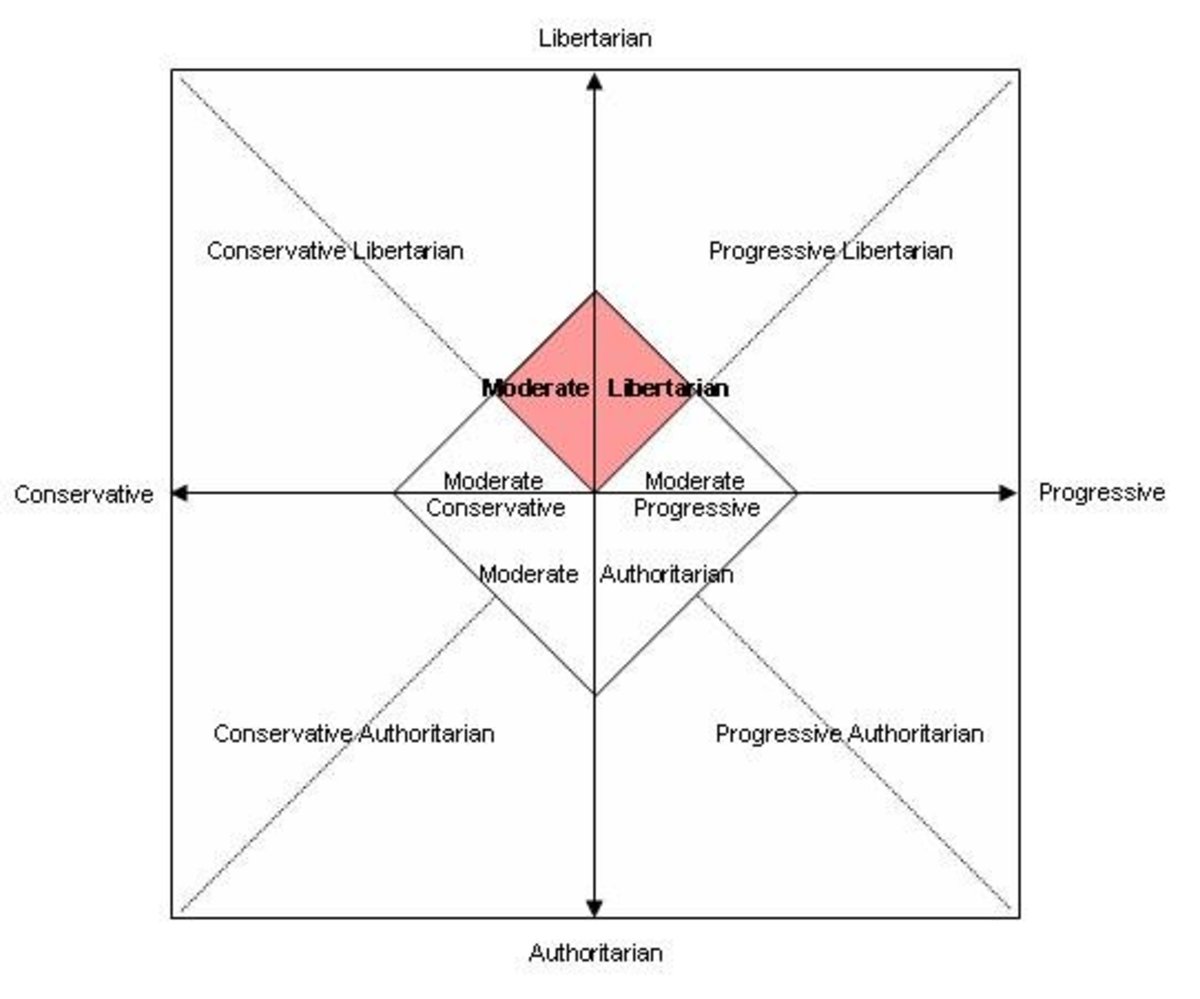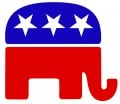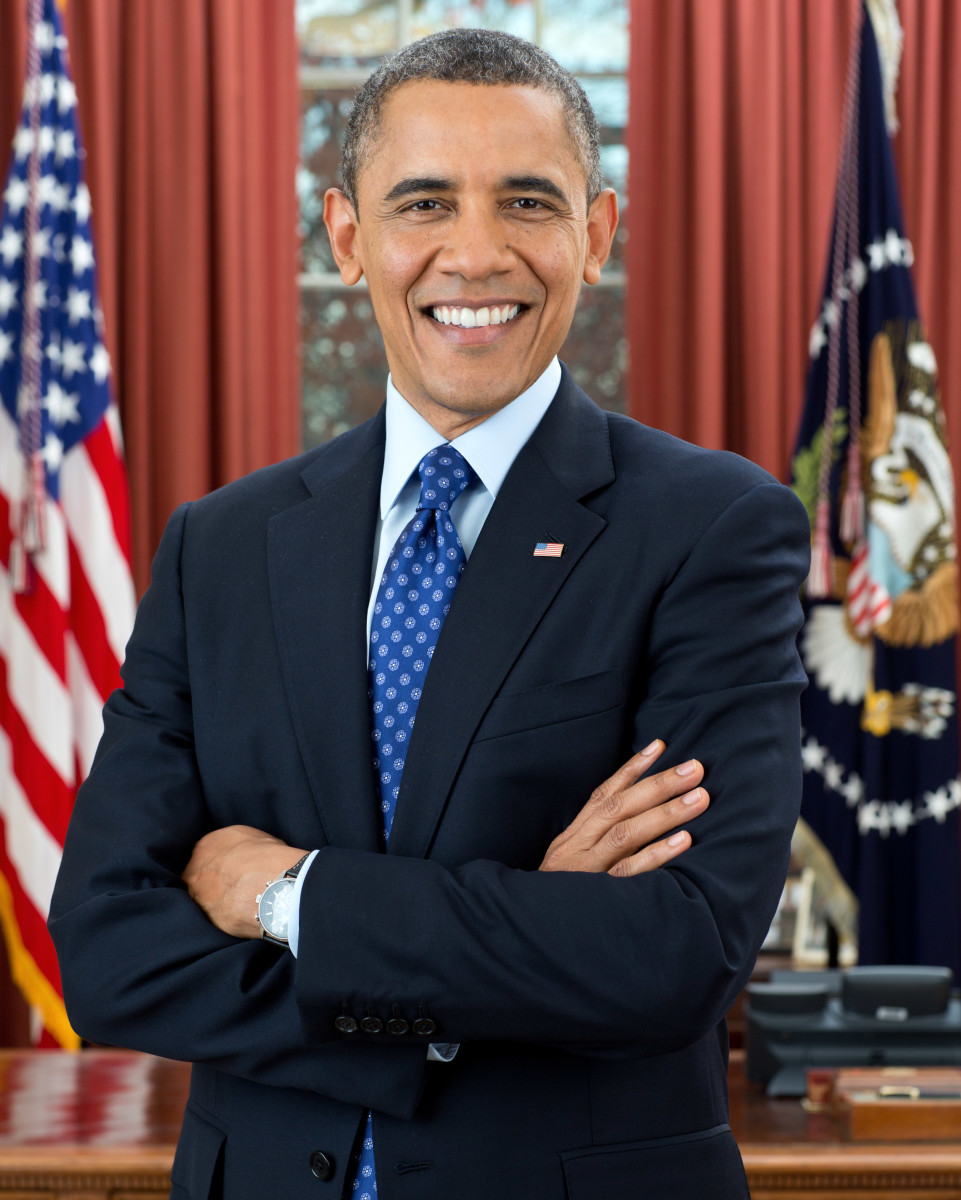20 Myths the Democratic Party Promotes
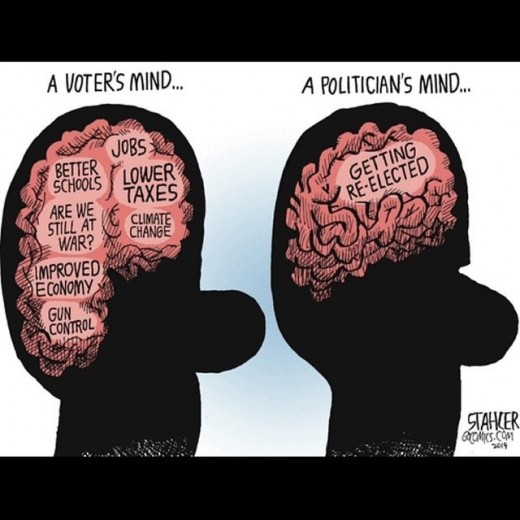
The Democratic Party sells itself as the caring, labor supporting, peace loving, conciliatory, health care promoting institution. However, their promises to work for the betterment of the nation and the people are false. While there are a few Democrats that don’t work exclusively for the moneyed elite, the party as a whole works for the wealthy and large corporations. It is time for members to reevaluate their participation in the party, especially its more progressive members.
It is also time for Democrats to get over their denial if they truly support progressive policies that benefit the people in the United States and not just a few elite. If you really believe in wealth, income and political equality, and you want things to change, you have two choices. One, you can push for progressive Democrats when they run for office and criticize the corporate Democrats. Or, you can leave the party and vote Socialist Alternative, Green or for another progressive party.
Here are some of the myths about the Democratic Party and their politics that party members must overcome so they can move on.
Myth #1: Nader caused Gore to lose the election in 2000.
Nader did not cause Gore to lose in 2000. The causes of Gore’s election loss in 2000 include Al Gore and his failure to get the still popular Clinton to help him, but the biggest causes were voter purging in Florida and the Supreme Court that handed George W. Bush the election.
As Matthew Jones wrote in Mother Jones, “It’s really difficult to make the argument that Ralph Nader cost Al Gore the 2000 election, for multiple reasons. There were only 560 votes separating George Bush from Al Gore. That’s essentially within every margin of error, which...means that there’s too many other factors that could have affected it to say with any confidence what caused Al Gore to lose and George Bush to win.”
It’s time for Democrats to accept that Gore lost, and it wasn’t Ralph Nader’s fault. Until the membership gets over this fundamental myth, they will never accept an alternative to the corporate Democrats.
Myth #2: The Democrat Party is liberal.
The Democrats have not passed what could seriously be called liberal legislation since Lyndon Johnson was in office. Liberal policies include single payer health care, effective campaign finance laws or gun safety laws. The Democrats failed to take action on these and other liberal policies when they had a majority in Congress. Why? Because the party as a whole is not liberal. The party always had conservative members, even more so today, especially in the leadership. And while a majority of the Democrats may support some liberal social policy like gay marriage, reproductive rights and equal pay for women, they have a terrible record on policing and minority rights, educational rights (schools are almost as segregated as they were in the 60s), housing and other civil rights issues. The best thing we can say about Eric Holder, Obama's Attorney General for 6 years, is that he has a 'mixed record', champion some civil rights while attacking civil liberties.
Democrats controlled the White House and Congress in Obama’s first two years in office and didn’t end the Bush tax cuts (really, bipartisan tax cuts), end the wars or close The Guantanamo Detention Center. If they were so liberal, what happened? The truth is, the Democratic party is not liberal on economic or foreign policy issues despite the welcome push for marriage equality and marijuana legalization, historically progressive issues.
Myth #3: George W. Bush and the Republican Party were (solely) responsible for the recent Iraq and Afghan wars.
That just isn’t true. It was a bipartisan effort. A majority of Democratic Senators voted for the resolution for presidential war powers in 2002 and about 40% of the House Democrats also approved of the bill. And since then, Congress has authorized funding for the wars numerous times with the help of Democrats. They only once tried to block the funding in any serious manner, lead by former Rep. Dennis Kucinich.
The Democrats have voted to fund the war over and over, even when they controlled the Senate and House at the beginning of Obama’s first term. No, Democrats, you have your own party to blame for the continuation and in large part the start of the war. Democratic House leader at the time, Richard Gephardt, pushed the war resolution, ““Everything changed with 9-11,” Gephardt declared. “If you’re worried about where terrorists will get these weapons, the first place you’d be concerned about is Iraq.” Other Democratic Party leaders also pushed the war. They were cowards in face of a charge to war.

Myth #4: The Democratic Party supports workers, not corporations.
That just isn’t true anymore of the party of Roosevelt. The Democratic party has done little for the middle class in thirty years. In fact, “Democrats simply don't consistently support concrete policies that help the broad working and middle classes. Half of them voted for the bankruptcy bill of 2005. They don't do anything for labor. They're soft on protecting Social Security…bailed out the banks but refused to bail out underwater homeowners…they can't even agree to kill the carried interest loophole, a populist favorite if ever there was one.”
Moreover, “…the Democrats are one side of the pro-capitalist U.S. political system…There is no changing the structure, nor the entrenched capitalism, of the Democrats.”
And while Democrats consider increasing the retirement age for workers and making other cuts to Social Security, they continue to pass corporate welfare bills, “One of the great bipartisan follies of American politics is the idea that the way to make your state (or city) more prosperous is through corporate welfare – in particular, policies meant to lure in companies with cash, tax breaks, or both. Rare is the politician in either party who dissents from the conventional wisdom that it’s the government’s task to “improve the economy” by using targeted incentives.”
In many cases, municipalities lose money on these deals. (ibid) But the corporate allies of the Democrats get a tax break, and that’s fine with them.
Myth #5: The Republicans are the party of the wealthy and corporations.
Well, that is true, but now, “…big business has...aligned itself with the Democratic Party.” Also, “Big business is working with the Democrats in favor of immigration reform because they want to expand the labor supply so they can hire people for lower wages. Big business has also received special treatment under the Affordable Care Act and they are happy to have received those favors.” (ibid)
Labor used to have some influence with the Democratic party; their influence is now minor and limited to only a few Congressional Districts. And even in those districts, like in San Francisco, labor faces fierce opposition from corporations like Bank of America and Twitter.
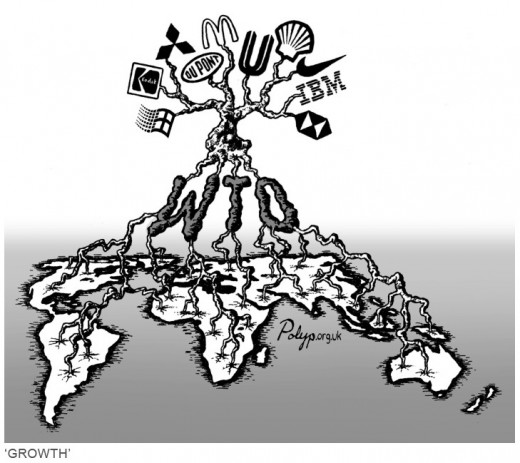
Myth #6: The Democratic Party is a party of peace and negotiation, and Obama promotes peace.
One look at the party’s votes for the Iraq war authorization, the hit list created by Obama, Kennedy and Johnson’s support for the Vietnam war and the years of war supported by a majority of Democrats and their other covert actions against the citizens of the world belie this lie about peace loving Democrats. Moreover, the Obama “…administration’s posture on Iran has already violated international law—using open threats and coding a few others. (Everybody knows what “all options are on the table” means.)”
Perhaps many of you don’t believe this myth, but the party’s war mongering is reason to challenge anybody's support for the party.
Myth #7: The Democratic Party is pro-labor.
Today, there are more pro-business Democrats in Congress than pro-labor Democrats. And, “There is an obvious reason why politicians do not keep campaign promises: although working people represent the vast majority of the electorate, small campaign contributions represent only 13 percent of all donations; large donors contribute 48 percent.” Congress members, especially in the House of Representatives, have to get donations to run for office. Corporations give the most and are the most reliable and being too liberal can lose candidates funds for reelection.
Thirty years ago, more or less, Democrats and labor supported each other. Now, it is a one-way love fest with unions still supporting anti-labor Democrats that ignore labor’s needs. For example, President Obama’s Race to the Top is a promotion of charter schools that will weaken unions, “The Obama administration strongly supports privatization via charters; one condition of Race to the Top was that states had to increase the number of charters.” No, the Democratic party no longer supports labor unions or workers.
The Democrats passed the North American Free Trade Agreement (NAFTA) that lost the nation an estimated million jobs. At the same time, “Democrats ended the only program that guaranteed a basic income for the poor (welfare), downsized the U.S. government, initiated the present policy of militarization of the Mexican border, and enforced sanctions on Iraq that killed over a million of its people. Bill Clinton based his economic policies around the corporate goals of boosting Wall Street.”
Clinton also pushed through a repeal of Glass-Steagall banking regulations, which was a major cause of the 2008 financial crisis.
And when Obama became president, he appointed “…former Federal Reserve Board Chairman Paul Volcker to head a White House advisory board to oversee the new administration's policies for stabilizing financial markets. The selection of the 81-year-old Volcker puts an inveterate enemy of the working class at the side of the new president, and demonstrates the class character of the right-wing government that Obama is assembling.”
So much for the Democrats being the party of labor.

Myth #8: Policy is most important to the Democratic Party.
Democrats talk well and hit all the talking points when addressing the public. Meanwhile, they are in private meetings fund raising from wealthy donors. For example, both Obama and Clinton made back room deals with the nuclear power industry to keep the donations coming.
Obama and Clinton have also reassured Wall Street that they wouldn’t face to arduous regulations, fines or punitive action for their role in the 2008 crash. It’s common practice; corporations get access, the people don’t.
The New Democrats have been working especially closely with business interests. Their donor list is a who’s, who of lobbyists, law firms and big business. The U.S. is a plutocracy, and Democrats are parts of that system. Garnering money and pleasing their donors, or a least not angering them, is what is most important. Helping people in the U.S. is an afterthought.
Myth #9: The Democratic party is the “lesser of two evils.”
First off, there is no such thing as ‘evil.’ It is a social construct used by people too lazy, ignorant, or too busy to accurately describe why an action, person, party or group is harmful to others. Moreover, if you believe in evil, why would you vote for one party over another, both being evil? Both parties act to stay in power, often at the expense of people in the U.S. and the world. Neither party is righteous.
Myth #10: The Democratic Party is the loyal “opposition.”
They are loyal, not as opposition, but to the two-party monopoly that runs this nation. The fact is that, “The two 19th-century political groupings divide up the spoils of a combined $6.4 trillion that is extracted each year from taxpayers at the federal, state, county and municipal levels. Though rhetorically and theoretically at odds with one another, the two parties have managed to create a mostly unbroken set of policies and governance structures that benefit well-connected groups at the expense of the individual.”
Both parties work together to sell us neoliberalism and stay in power. That is their main goal. If the economy grows for the well off and the powerful and statistics make it look like everyone has benefitted regardless of the reality, then to Democrats, they have succeeded.
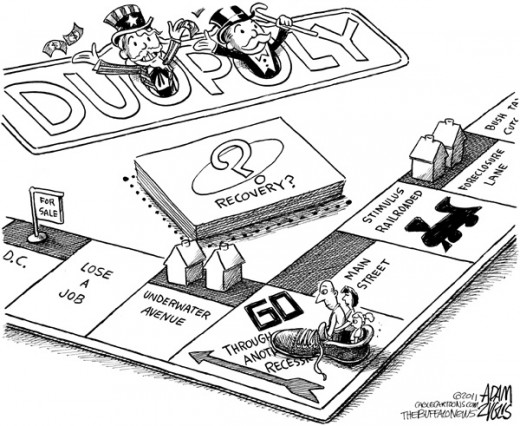
Myth #11: The Democratic Party cares about inequality.
The rhetoric the party uses demonstrates that they care. Phrases like “I feel your pain” (Bill Clinton), “We know we’ve got to attack poverty by making sure the economy works for everybody” (Hillary Clinton) and “I didn't come from privilege. I've said before and I mean this -- this is the only country on Earth where my story is possible” (Barack Obama) suggest a certain amount of caring. However, the actions of the party as a whole since the 70s tells us they care little. In fact, “…despite the obvious utility of a combative, working-class message—I will fight for your rights against the banks and the fat cats—it’s not going to happen. So far, Clinton is more interested in consensus than conflict, and there’s little chance that will change in her official presidential campaign.”
Put differently, Clinton has no interest in offending donors and other wealthy supporters. Or, as Scheiber writes, “Though she derided the Republican practice of cutting taxes on the wealthy...she made no mention of tax increases or more aggressive measures, like capping the pay of chief executives or modestly taxing stock market transactions.”” (ibid)
The suggestion that labor is a counterbalance to corporate power is an elite invention, “No, the problem is that the Democratic Party lacks an institutional counterweight to the loud voices of wealthy donors and power brokers.” (ibid) While there are some in the party that work for equality, the rhetoric fades away as does the memory of the election, “After making fighting income inequality an early focus of his second term, President Obama has largely abandoned talk of the subject this election year in a move that highlights the emerging debate within the Democratic Party over economic populism and its limits.”
If the party did care, they would end the war on drugs and stop the schools to prison pipeline by adequately funding schools across the United States. They could also work to pass a living wage, or at least try to pass such legislation. They don’t because winning elections is good enough for them.
Myth #12: The Republicans are the enemy.
Democrats have worked in many ways for corporations and against citizens. By seeing the Republicans as the enemy, you let the Democrats into your house where they can do lots of harm. A Republican would have had a harder time getting NAFTA passed over Democratic opposition, but President Clinton cajoled his party, got them to uphold party discipline to support their president, and got the trade packages through Congress.
If we are going to divide the world into friend or foe, let us not be distracted by the duopoly that perpetuates the two-party system to keep us fighting each other. The truth is, the anti-labor moneyed elite, the sociopaths who appear through lack of action and debate to have few feelings about hunger, extreme child poverty, homelessness or people without health care dying in hospitals are the enemy, not you and me.
As dissent arises, “…against the corporate and business dominance of our nation, the media and their proxies manufacture an artificial schism in the American population to get the attention diverted away from themselves. The propaganda of hate, the propaganda of the oppositional other, the divisive discourse against those that have superficial disagreements with you, a technique we know as divide and conquer, is a powerful strategy. That’s how the elite in this nation stay in power against overwhelming numerical odds.”
Ultimately, it is the elite against the rest of us.
Myth #13: The Democratic Party will fight for campaign finance reform
Here is another issue that some of the Democratic membership supports, that the party platform mentions, but the politicians have done little to address. Many in the party won’t touch the issue.
In Oregon this year, the Democratic majority in the legislature killed campaign finance legislation. Both parties not only benefit from the increasing campaign contributions, they feel they can’t win without the funds. In New York, Democrats failed to bring a law on campaign finance to the floor of the state house. Killing campaign finance reform is a bipartisan effort.
And when given the cover of Republicans who can be blamed for their failure, Democrats will vote and work against campaign finance reform, “This week the U.S. Senate considered a constitutional amendment that would have allowed Congress and state legislatures to limit the power of money in politics. The debate was not much covered in the media because the outcome was so predictable.” This is how little both parties care about the citizens having a voice in U.S. politics.
Myth #14: The Affordable Care Act (Obamacare) is a major step in health care reform.
First off, let’s stop with the “Republicans blocked single payer health care” lie, “The argument by many liberals that the administration’s plans for health care were wrecked by conservative Democrats and Republicans in the Senate does not hold water. The evidence shows that the Obama Administration made a deal with hospital, drug, and health insurance companies before the bill was even released into the Senate.” Obama didn’t want single payer health care, and unlike the efforts to get support for the Trans-Pacific Partnership, did not push single-payer health care in Congress.
In was a corporate bill from day one, “Obamacare, the Affordable Care Act (ACA), was supported by the health care lobby which include big pharma, insurance, hospitals and HMOs. The corporate law was supported by both parties, and is touted by the White House as a victory. Yes, it is a victory, for corporations...it kept corporations in the profit making business of healthcare by putting the costs onto taxpayers and those that buy insurance. And the insurance mandate meant more costumers for insurance companies...”
It was written to protect corporate profit, “After all, from the standpoint of the health care industry, the system is working just fine for their profits.” It does help more people get health care, at a price.
Myth #15: The Democratic Party is pro-education, pro-teacher
The party hasn’t been pro-teacher for years. In fact, leaders in the party like Bill Clinton, Barack Obama, Rahm Emanuel and others have actively pushed policies that promote school privatization. And Democratic law-makers have voted for these ideas. As reported in the Washington Post, “For years now it’s been clear that Democrats have splintered over the issue of corporate school reform.
President Obama and Education Secretary Arne Duncan have been leaders of the movement to transform public schools through standardized-test-based “accountability” and the expansion of charter schools, with other Democrats arguing that these reform measures are not effective ways of closing the achievement gap and improving student performance.” Obama and allies in the cabinet have supported challenges to teachers job protections in many states. (ibid)
Obama’s Race to the Top (RTTT) pits schools against schools for funding and uses testing as a benchmark for bonus funding. That is problematic in many ways, but the worst part is that teaching professionals, those currently working in the classroom, have no say over the way the law was written.
RTTT forces states and school districts to compete for $4.35 billion in bonus federal dollars for schools with money going to states that promote charter schools, increase the use of standardized testing and weaken teachers’ protections. Democrats have promoted a corporate educations agenda for years, “Essentially, the scheme sets up a bidding war among the states for desperately needed funds on the basis of an anti-public education agenda that has been promoted for decades by the right wing.”
Pitting schools, districts, states and teachers against one another for measly sums of money won’t promote real educational reform. It will promote “rule following and conformity.” Furthermore, states that promote merit pay for teachers also get bonus points in the 'race' to garner more school funding.
So, teachers’ pay under RTTT is based on how well little John, Sally, Juan, Chin or Lilliana do on a standardized test that is only valid if you don’t considered the cultural and economic variations of all students in the United States.

Myth #16: The Democratic Party will work for financial reform.
That’s just not true; in fact, they supported Bush’s bailout of Wall Street. The Democrats bailed out failing corporations, "as though it were a punitive measure aimed at reigning in corporate greed."
Speaker of the House, Nancy Pelosi proclaimed at the time, “The party is over...No longer will tax payers be forced to bail out reckless investors.” Then they bailed out Wall Street and didn’t pass new regulations on the banks. (ibid)
Myth #17: Democrats have to move to the center to win elections. Progressives are far too radical to win.
When you look at these supposedly ‘radical’ ideas, you realize they get a lot of support nationally and all over the world.
Progressive ideas that are popular in the United States include higher taxes on the rich, background checks for gun ownership and raising the minimum wage, but Congress either outright rejects these ideas or balks at doing anything about them. Democrats are afraid to support these ideas for fear their donor base might leave them, and they move to the right. However, in 2012 and 2014 Democrats who were progressive and remained so did better than the conservative Democrats even though popular “wisdom” told them to move right.
Myth #18: Obama is a successful president.
Dear Democrats: I know it’s hard to believe a loved one would fail you so. But Obama is at best, an average president.
Obama, “Elected in the midst of a crushing economic crisis brought on by a decade of orgiastic deregulation and unchecked greed...had a clear mandate to rein in Wall Street and remake the entire structure of the American economy. What he did instead was ship even his most marginally progressive campaign advisers off to various bureaucratic Siberias, while packing the key economic positions in his White House with the very people who caused the crisis in the first place.”
His economic team included Michael Froman, from Citigroup; Bob Rubin, formerly co-chair of Goldman Sachs; Henry Paulson, a former head of Goldman Sachs; Tim Geithner, New York Fed Chief; and Larry Summers, Director of the National Economic Council for President Obama and former executive at Citigroup. How is that change we can believe in when this economic team Obama hired had been working for, or in charge of, companies responsible for the 2008 economic collapse?
On foreign policy, like economics, his policies were run by former advisors that got us into the quagmire in the Middle East. On jobs, Obama presented no vision and few programs other than job training for jobs that don’t exist. The other side of his job’s program featured tax incentives for companies hiring U.S. workers, ending up helping corporations as much or than workers. Rebuilding the nation's infrastructure has not been a priority for Obama except in a few speeches. His failed economic vision shows his weakness as president.
Myth #19: The Democratic Party is Entirely Different from the Republican Party
Outside of the margins and some important social issues like choice and gay marriage, the two parties vary little, “That is why big business funds two political parties, so that when one of their parties is discredited, they have their alternative ready to step in. Both Democrats and Republicans are integral parts of the two-party system. But each plays a slightly different role in that system.” (http://www.socialistalternative.org/challenging-capitalism-and-the-two-parties/democrats-two-party-system/)
Issues like immigration, affirmative action, a woman’s right to choose, marriage equality, gun control and other social issues are just window dressing. They are a facade that covers the truth that both parties are fundamentally the same when it comes to economic and foreign policies. Neither party wants Medicaid for all, an end of funding for Israel and other nations that violate humans rights such as Egypt and Saudi Arabia, both perpetuate the electoral system that keeps them in power and nether will do anything to address the fundamental economic inequality in our nation. Neither party is pushing for an increase in taxes on the 1%, though Democrats have feigned and faked that they would.
Myth #20: The Republicans blocked all the decent legislation the Democrats wanted to pass
This is totally false. The fact is in 2008 the Democrats had 60 votes in the Senate. That is a filibuster proof majority. It was the corporate leaning members of the party, Landrieu, Baucus and the like, that blocked a progressive agenda by not overriding filibusters. (http://www.socialistalternative.org/challenging-capitalism-and-the-two-parties/democrats-two-party-system/) The filibuster is not law, nor is it in the Constitution. It is an agreed upon Senate rule.
A majority of Senators can change that rule. They could have passed a rule with a simple majority, 51 votes, to end the filibuster for Presidential appointments and make them actually filibuster other bills. (ibid) But they didn’t, and now people blame the Republicans for the inaction of the Democrats.
In addition, some scholars say Rule 22, the filibuster rule, is not Constitutional because it does not allow a simple majority in the Senate to change it. But the Democrats and the Attorney General did not challenge the rule when it mattered.
Certainly, the differences in the two parties on social issues matter. But don't expect foreign policy, economics or inequality to change under the Democrats.
Peace,
Tex Shelters
Epilogue: The deal with Iran to avoid bombing is an Obama State Department success, so far. Let's hope it lasts. If Obama had treated other conflicts this way without bombing, he could have improve the U.S. standing in the world.


